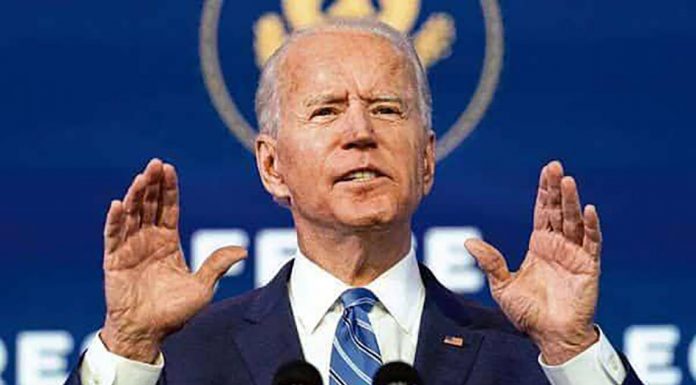Amid growing tensions over the recent aggressive stance of China over Taiwan, the US President Joe Biden administration has rejected Intel Corp's plan to increase production in China over security concerns, dealing a setback to an idea pitched as a fix for US chip shortages.
Intel, the world's largest chipmaker, has proposed using a factory in Chengdu, China, to manufacture silicon wafers, said the people, who asked not to be identified because the discussions were private. That production could have been online by the end of 2022, helping ease a global supply crunch. But at the same time, it's been seeking federal assistance to ramp up research and production in the US.
When presented with the plan in recent weeks, Biden administration officials strongly discouraged the move.
The situation underscores the challenges of the chip shortage, which has hobbled the tech and auto industries, cost companies billions in lost revenue, and forced plants to furlough workers. The administration is scrambling to address constraints, but it's also trying to bring production of vital components back to the US — a goal Intel's China plan didn't serve.
In a statement, Intel said it remains open to “other solutions that will also help us meet the high demand for the semiconductors essential to innovation and the economy.”
“Intel and the Biden administration share a goal to address the ongoing industry-wide shortage of microchips, and we have explored a number of approaches with the US government,” the company said. “Our focus is on the significant ongoing expansion of our existing semiconductor manufacturing operations and our plans to invest tens of billions of dollars in new wafer fabrication plants in the US and Europe.”
The episode comes as the White House is debating whether to restrict certain strategic investments into China. National Security Adviser Jake Sullivan has said the administration is considering an outbound investment screening mechanism and is working with allies on what it could look like. President Joe Biden also is set to meet virtually with Chinese President Xi Jinping on Monday.
A representative for the White House declined to comment on specific transactions or investments but said the administration is “very focused on preventing China from using US technologies, know-how and investment to develop state-of-the-art capabilities,” which could contribute to human rights abuses or activities that threaten US national security.
Like other chip companies, Intel is eagerly waiting for Congress to pass $52 billion in funding for domestic research and manufacturing. That proposal, called the CHIPS Act, has been lingering in the House for months. The president and Commerce Secretary Gina Raimondo have been pitching the measure as a way to compete with China — as well as preventing supply crunches in the longer term.
Following deliberations with the Biden team, Intel has no plans to add the production in China at the moment, a person familiar with the decision said. Still, such scenarios could arise again, and the administration may need to decide what rules come attached to the grant money.
China is the biggest consumer of semiconductors for local use, and it serves as the assembly centre for much of the world's electronics. To help with logistics and to keep Beijing happy, chipmakers — including Intel — have located plants there. But they face longstanding US government restrictions that prevent them from exporting cutting-edge semiconductors to the country.
Intel also is trying to take on the world's biggest contract manufacturers of semiconductors, increasing its production needs — and its potential reliance on China. To challenge the leaders in that industry, Taiwan Semiconductor Manufacturing Co. and Samsung Electronics Co., Intel needs to be able to support Chinese customers or lose out on a huge chunk of the market.
Intel's plants have previously only manufactured chips of their own designs, mainly the processors used by the personal-computer industry. But it faces mounting competition from products made by TSMC and Samsung, so Gelsinger's strategy is to challenge them at their own game.











